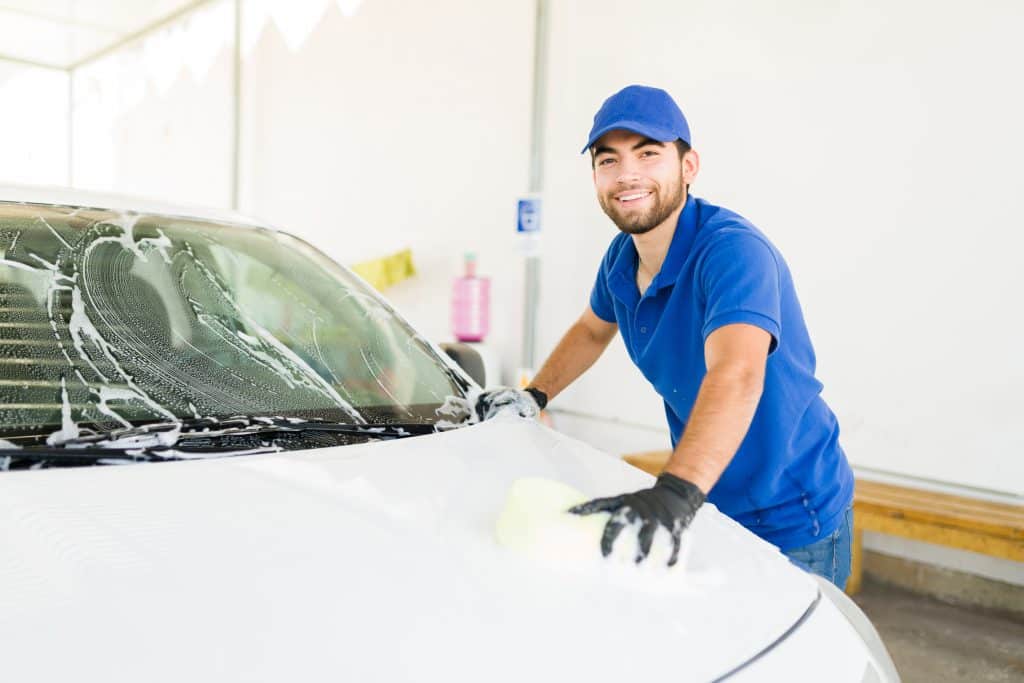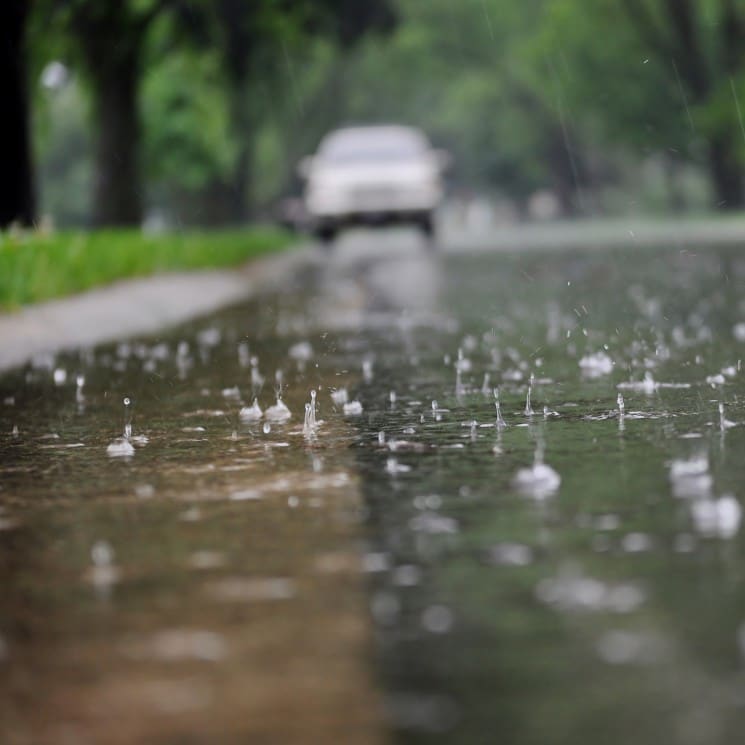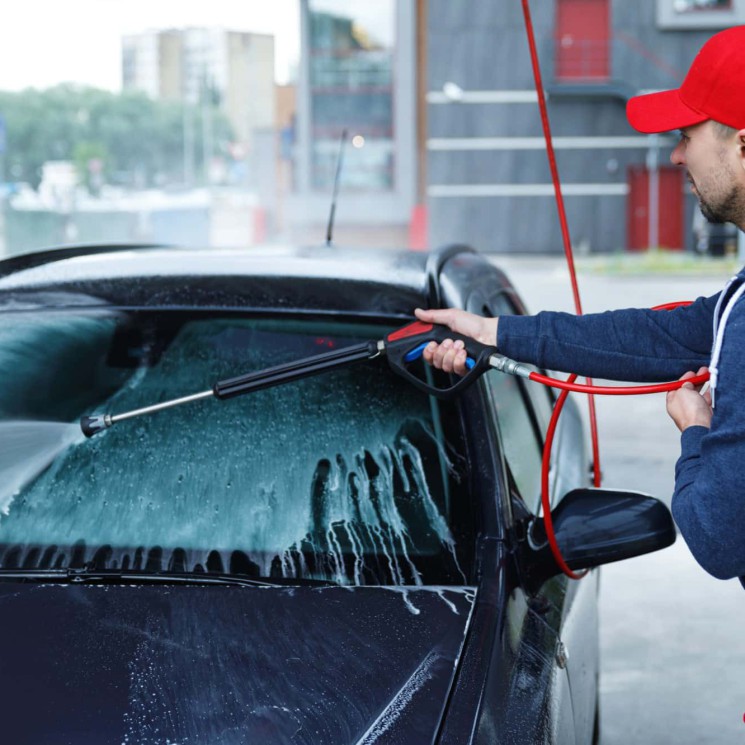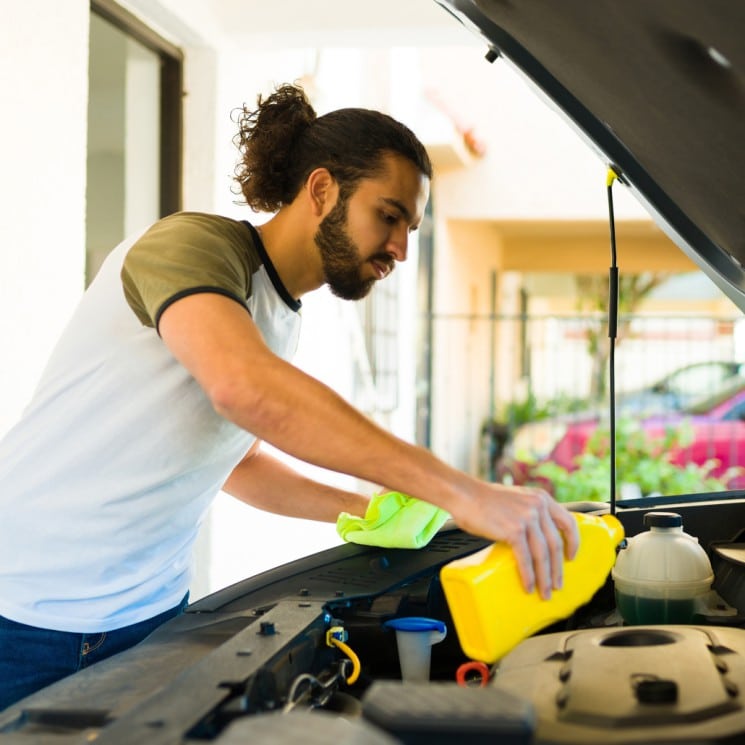Prevent Water Pollution from Car Care
Use a Commercial Car Wash
Washing your car in the driveway, street or carport can carry detergents, oil, brake dust, metals and other chemicals to the storm drain that leads directly to local creeks and the Bay. Wash your car in an unpaved area or better yet, take it to a commercial car wash. Car washes are a more eco-friendly choice because they collect and recycle the water. They even help you save water! Watershed Watch offers discounts at local car washes.
Download Discount Card
Click here for more information in English, and click here for information in Vietnamese, Chinese and Spanish.
Clean Brake Dust Off Wheels
Clean your wheels with paper towels and dispose of the towels in the trash.
Fix Fluid Leaks Immediately
If you see drips and stains on your parking spot, place a plastic tarp or drip pan underneath your car to catch fluids until you repair the leak. Dispose of fluids and the drip pan or tarp at your local Household Hazardous Waste collection center.
Change Oil on Time
The longer engine oil is used, the thinner it gets. Leaks are more likely and exhaust emissions are increased.
Properly Dispose of Used Oil
If you change your own oil or other automotive fluids, drain fluid into a drain pan. Use a funnel to pour fluid into a plastic container and recycle the used fluids with your local curbside recycling pickup, or at the Household Hazardous Waste (HHW) collection center. Never drain or pour any auto fluid onto the street or into a storm drain.
Learn About HHW Disposal
Clean Engines with the Least Toxic Cleaner
Many engine cleaners contain degreasers that contain highly toxic solvents that are dangerous to work with and harmful to our watershed. Read labels carefully before you buy. Avoid products containing naphtha, nonylphenol ethozylate, trichloroethane or trichloroethylene. Try limonene, a citrus-based solvent instead of the ingredients listed above. Use rags instead of water to clean your engine. Don’t allow wash water to go onto pavement, or into the storm drain or street.
Reduce Unnecessary Driving
Carpool or use alternative forms of transportation when possible, to reduce harmful emissions and the potential to contribute to water pollution.




